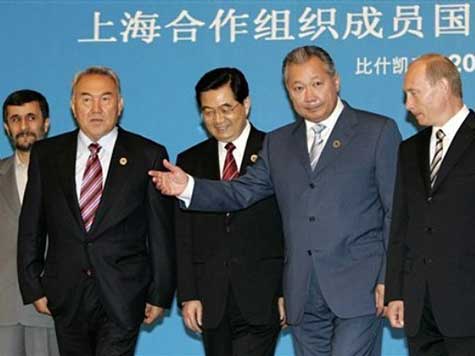In 1914, nobody expected an unknown radical Serb and a Belgian pistol to start a Great War between European powers. But when Gavrilo Princip shot and killed Austrian Archduke Franz Ferdinand on June 28 in Sarajevo, the course of World War I was set.
An isolated act can have enormous consequences.
A first strike directly between America and the largest players in global instability – China, Russia and Iran – is unlikely. But hot spots around the world important to their state egos or strategic plans do pose a hazard.
In particular, our allies Israel and Taiwan are powder kegs that could lead us into global conflict in minutes.
The International Atomic Energy Agency reported in November that Iran’s nuclear missile project remains focused on adding nuclear warheads to its Shahab-3 missiles, a variant of North Korean missiles adapted for Iran with Russian and Chinese assistance.
As a result, America, Canada, the U.K. and France announced new sanctions against Iran. China immediately declared its opposition. Russia, with significant arms and energy trade with Iran, claimed sanctions violated international law and it would stop any attack on Iran.
China is Iran’s largest trading partner whose investment allowed Iran to militarily “harden” its Straits of Hormuz through which 17% of the world’s oil travels and which Iran continually threatens to close. Last December, Chinese general Zhang Zhaozhong said his country would protect Iran in any war. Whether loose canon or strategically-placed useful idiot, the message is China will protect its third largest oil supplier.
Secretary of Defense Leon Panetta recently took a hard line against Iran, stating a nuclear Iran is “unacceptable” and military options are not off the table.
If Iran strikes Israel, America would unequivocally back our friend with whatever force projection needed. For energy-seeking and jingoistic reasons, China and Russia would quickly engage militarily to support Iran.
Boom. America is in a conflict that could escalate to world war status against all three.
A similar threat exists with democratic Taiwan, a small island with a huge impact on global stability; a state we have pledged to protect from Chinese aggression.
Although Mainland China commenced a charm offensive with Taiwan in recent years (even backing off the “One China” rhetoric), China has had one goal regarding Taiwan since 1949 – reunification.
Despite warming dialogue, China continues to build its military power directly across the Taiwan Straits, including a thousand fighter planes, two thousand ballistic missiles and 10,000 soldiers.
When our government announced in January 2010 it was selling a $6.4B arms package to Taiwan that included anti-ballistic missiles, China responded by cutting military-to-military ties with the U.S.
If China were to invade Taiwan, our Pacific Fleet would activate to protect our ally and military investments and we would come face-to-face with China’s growing blue water navy and new anti-ship missiles.
Russia and Iran jump to aid China and we are in yet another global conflict, dragged in by countries the size of New Jersey and Indiana.
So where does America land on the national security Wheel of Fortune? On Ballistic Missile Defense (BMD), proven to safely and successfully intercept and destroy nuclear missiles aimed at the homeland, our troops abroad, and our allies. Deterrence encourages most state actors to keep nuclear warheads to themselves but has no impact on radical state or non-state actors to whom suicide is a more pleasant alternative than allowing enemies to live.
America’s BMD program, located on Aegis-equipped Navy ships or in “Aegis Ashore” land-based sites, is our best defense against global conflict. Many U.S. allies – including Taiwan – have invested in our SM-3 (Standard Missiles-3) Interceptors and Israel depends on defensive support from our BMD-equipped Aegis ships in the Mediterranean.
As U.S. military officials called for more SM-3’s, last Fall Congress cut millions from next generation interceptors set for delivery in 2020. The best use of those dollars was shifting them to purchase and improve critically needed SM-3 variants, a step Congress wisely took in the 2012 Defense Appropriations Bill.
President Obama is releasing his FY2013 budget this week. There are grave concerns that the White House could cut the number of anti-ballistic missiles capable of protecting the homeland by as much as fifty percent.
Ironically, it is believed Iran will have its long-range missile operation in 2015; the same year our new defensive missiles would be deployed. “Ironically” could turn to “tragically” if budget cuts push our defense capabilities back and leave us susceptible to missile attack from Iran.
Threats from Iran now seem to increase hourly, and China and Russia continue to protect it. The need for aggressive growth in the SM-3 defensive arsenal has never been more paramount as these missiles serve as pot lids on bubbling global conflicts.
Intercepting an enemy warhead not only saves those at which it is aimed; it ensures we are not dragged into global conflicts that could prove devastating to our nation.


COMMENTS
Please let us know if you're having issues with commenting.